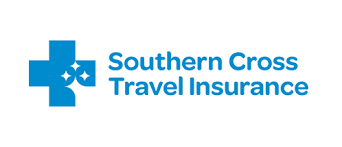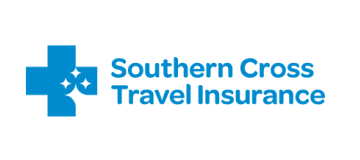What is travel insurance?
Travel insurance is a type of insurance that is intended to cover you for emergencies, accidents or other events that occur unexpectedly while you are away from home. Say you touch down at your destination only to learn that your luggage did not arrive with you, or you take a tumble and break something on the first day of your dream holiday. At stressful times like these, travel insurance may be able to help you with certain associated expenses.
Broadly speaking, there are two main types of travel insurance:
- domestic travel insurance covers you for trips taken within Australia
- international travel insurance will cover you for overseas trips, and typically covers slightly different things than domestic cover.
What does travel insurance cover?
Depending on the kind of policy you have, the best travel insurance can cover you in a range of different situations, and providers will offer a range of travel insurance inclusions. Generally speaking, though, travel insurance is likely to cover you for the costs associated with things such as:
- Lost or stolen luggage: Personal effects can be lost, stolen or damaged during a trip, and if your luggage goes missing, your laptop is stolen or an important item is damaged, travel insurance may be able to help with replacement or repair costs.
- Medical costs: If you injure yourself while on an overseas trip, you may need to see a doctor, and overseas hospital bills can be expensive, not to mention the cost of transport home, if required. Travel insurance may cover some of these costs for you.
- Natural disasters: Natural disasters happen, and if a prepaid booking falls through because of a natural disaster and you are unable to get your deposit back, travel insurance may be able to help with the cost. Depending on the policy, it may also help to cover costs if you need to be evacuated from your holiday destination.
- Liability for accidents: If you are at fault in an accident overseas, you may find yourself getting sued. Some travel insurance policies can provide cover for liability in these situations, up to a certain amount.
- Family emergencies: It’s stressful when a close family member becomes sick, and even more so if you are overseas and cannot rush to their side. Some travel insurance policies may provide cover to help you get home in these situations.
What are the different types of travel insurance?
Depending on your needs and situation, you might opt for either a basic or a comprehensive travel insurance policy.
- Basic: As the Australian government’s Smarttraveller website states, basic policies tend to cover medical emergencies only, and can therefore be suitable for younger people who are travelling light and do not necessarily wish to insure their possessions.
- Comprehensive: Comprehensive travel insurance policies, on the other hand, tend to offer coverage for a broader range of situations, including cover for such things as cancellation costs and lost or stolen property along with cover for medical emergencies. These types of policies generally cost more than the basic policies.
It is important to remember that no travel policy will cover you for every single thing that could possibly go wrong while you’re away. Some may provide coverage for the situations mentioned above, but potentially only in limited circumstances.
It’s important to carefully read the policy terms and conditions in the product disclosure statement (PDS) for any policy you’re considering when doing a travel insurance comparison, and ask any questions you may have when purchasing the insurance, so you know what is and is not covered.
How to find the best travel insurance?
There is no one-size-fits-all solution when it comes to travel insurance, and the ‘best’ option will come down to what suits your needs and budget. For instance, if you plan on a more adventurous holiday where you’ll be skiing or snowboarding or even rock climbing, then the best policy for you will be one that offers cover for your chosen activity at a competitive price. On the other hand, if you are particularly concerned about lost or stolen luggage, then the best cover for you may be one that offers a high limit for this. When comparing travel insurance, it’s important to think carefully about your specific needs, to ensure you can find a policy that covers them at a price that suits your budget.
How much does travel insurance cost?
There is no set cost for travel insurance, and it will vary depending on a number of key factors. It could be a good idea to get a few quotes to compare price and cover. The most common things that influence the cost of travel insurance include:
- Where you’re travelling
- The length of your trip,
- Your age and the ages of those accompanying you
- Any pre-existing medical conditions you have
- The type of policy you choose
- Any extras that you choose to add on to the cover
It may be the case that travel insurance for seniors is more expensive, as insurance providers may feel that there are more potential health risks associated with travel. You may also find, however, that seniors travel insurance can also include some benefits tailored more for older travellers.
The comparison tool at the top of this page allows users to input a few details (no personal details such as email are required) to find a shortlist of providers.
Is travel insurance worth it?
Whether or not travel insurance is worth the cost is a personal decision, but one that should be seriously considered when deciding to travel. The Australian Government’s Smartraveller website stresses the importance of travel insurance for Aussies heading abroad, saying that it’s “as important as a passport”, and warning that you and your family could “suffer financially if things go wrong” on your trip. “No matter who you are, where you’re going and what you’re doing, get insurance,” Smartraveller states
When you’re getting ready to jet off for a trip, there are a lot of expenses you’ll already face, such as flight and hotel bookings, and even cold weather gear. Then you’ll need to allocate money to actually have fun while you’re on your trip.
When you factor in all these costs, travel insurance may seem like an additional expense that’s not worth it, however, it is important to remember that if you don’t have at least some level of cover, your trip could end up costing you more than you bargained for.
While it will be an additional expense, the best travel insurance can save you a lot of money and heartache if the unexpected occurs on your trip.
Does travel insurance cover medical expenses?
Yes, travel insurance can cover medical expenses, although it will depend on the level of cover you choose. In a general sense, when it comes to medical expenses, travel insurance can cover you for such things as:
- Overseas medical treatment: This can include such things as the costs of doctors’ appointments and necessary medications.
- Emergencies: If you require emergency treatment, travel insurance can cover the costs of emergency surgeries and transport in an ambulance.
- Hospitalisaiton: If the nature of your injury or illness is such that you require hospitalisation, travel insurance can pay for expenses related to your stay.
- Repatriation: If the nature of your injury or illness is such that you require transportation back to Australia, the costs of this can be covered by travel insurance.
Medical expenses may be a major reason to take out travel insurance. You may have seen stories on the news about Aussies injured overseas and faced with thousands if not hundreds of thousands of dollars in medical bills, and significant transport costs if repatriation home is required.
The Australian Government has reciprocal healthcare agreements (RHCA) with certain countries, meaning that in Belgium, Finland, Ireland, Italy, Malta, the Netherlands, New Zealand, Norway, Slovenia and the UK, you may be partially covered for medical treatment. However, it is worth keeping in mind that the scope of this cover can be limited, and if you are travelling in a country without an RHCA and you experience a medical emergency, you may find yourself facing a considerable bill.
It is important to keep in mind that travel insurance policies generally also have exclusions around medical expenses covered.
Surgeries and treatments deemed non-essential may not be covered, and likewise, private hospital rooms may not be covered, unless deemed necessary by doctors.
What are some common travel insurance exclusions?
Travel insurance policies will not cover you for everything that happens to you while you’re on a trip, and in some cases, you’ll need to take out specific kinds of cover above and beyond standard travel insurance in order to be covered.
Some common travel insurance exclusions are:
- Costs or cancellations that arise from a pandemic or an epidemic (such as COVID-19)
- Skiing or other snow activities (typically, you’ll need snow cover for that)
- Dangerous activities (‘hazardous pursuits’) such as such as scuba diving or bungee jumping (some insurers may cover this automatically, but it’s possible you may need to pay extra or buy a separate adventure travel policy)
- High-value belongings (unless you tell your insurer about them)
- Risky or irresponsible behaviour on your part, including behaviour while under the influence of alcohol
- Pre-existing medical conditions that you didn’t tell your insurer about when applying for insurance
- Intentional illegal behaviour, or breaking local laws and regulations more generally
- Lost items where you left your belongings unattended
- Driving a motorbike overseas (you may be able to obtain cover in some cases if you have a motorbike licence and are driving a low-power vehicle – check with your insurer)
- Acts of war
What’s new in travel insurance in July 2025?
- Travel insurance provider nib Travel has revealed that, in the first six months of 2025, it has paid out approximately $26.4 million in medical claims, ranging from cover for emergency surgeries through to air ambulance evacuations for injured Aussies.
- The biggest individual claim was for a man in his 70s, who required heart surgery in the US and repatriation fights, with the bill totalling $1.7 million. Dylan Wilkinson of nib Travel said this highlights the “overwhelming” financial burden that can occur if something goes wrong on holiday.
- Bali has long been a popular destination for Aussie travellers, and our love affair with this destination shows no signs of slowing. According to Insurance Business Magazine, there has been a significant increase in both travel insurance policies and claims for Bali over the last year.
- Data from Southern Cross Travel Insurance and 1Cover showed a 50% year on year rise in Bali-related claims in 2024. The most frequent claims stemmed from foodborne illnesses like gastroenteritis, as well as reef-related injuries, and wildlife-related incidents like monkey bites. Ouch!
About our finance experts
Nina Rinella, Editor-in-Chief
As Canstar’s Editor-in-Chief, Nina heads up a team of talented journalists committed to helping empower consumers to take greater control of their finances. Previously Nina founded her own agency where she provided content and communications support to clients around Australia for eight years. She also spent four years as the PR Manager for American Express Australia, and has worked at a Brisbane communications agency where she supported dozens of clients, including Sunsuper and Suncorp.
Nina has ghostwritten dozens of opinion pieces for publications including The Australian and has been interviewed on finance topics by the Herald Sun and the Sydney Morning Herald. When she’s not dreaming up ways to put a fresh spin on finance, she’s taking her own advice by trying to pay her house off as quickly as possible and raising two money-savvy kids.
Nina has a Bachelor of Journalism and a Bachelor of Arts with a double major in English Literature from the University of Queensland. She’s also an experienced presenter, and has hosted numerous events and YouTube series.
You can follow her on Linkedin, or Canstar on Facebook.
You can also read more about Canstar’s editorial team and our robust fact-checking process.
Josh Sale, Travel Insurance Ratings Manager
 As Canstar’s Group Manager, Research, Ratings & Product Data, Josh Sale is responsible for the methodology and delivery of Canstar’s Travel Insurance Star Ratings. With tertiary qualifications in economics and finance, Josh has worked behind the scenes for the last five years to develop Star Ratings and Awards that help connect consumers with the right product for them.
As Canstar’s Group Manager, Research, Ratings & Product Data, Josh Sale is responsible for the methodology and delivery of Canstar’s Travel Insurance Star Ratings. With tertiary qualifications in economics and finance, Josh has worked behind the scenes for the last five years to develop Star Ratings and Awards that help connect consumers with the right product for them.
Josh is passionate about helping consumers get hands-on with their finances. Josh has been interviewed by media outlets such as the Australian Financial Review, news.com.au and Money Magazine.
You can follow Josh on LinkedIn, and Canstar on X and Facebook.




































